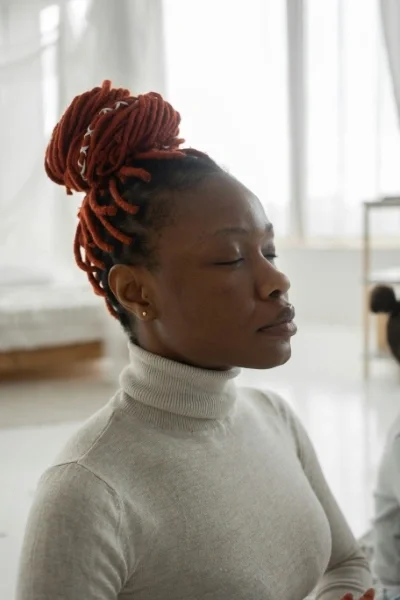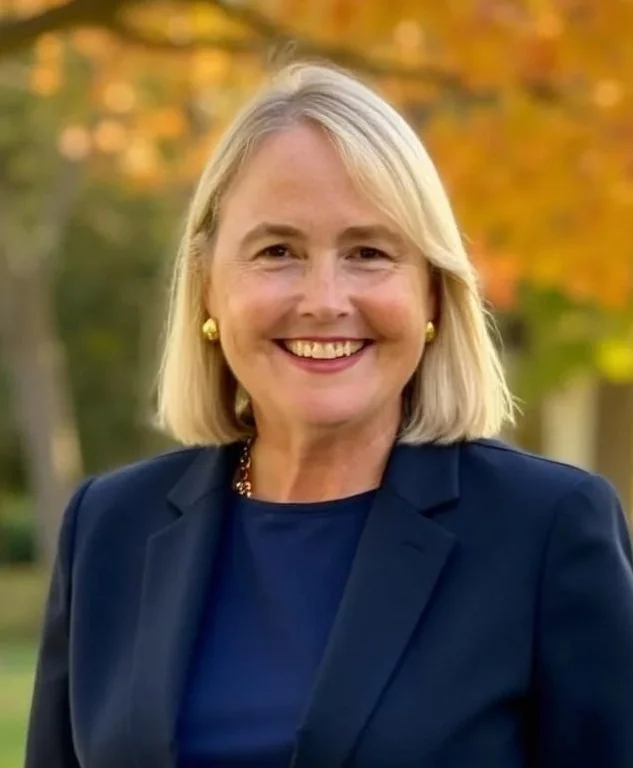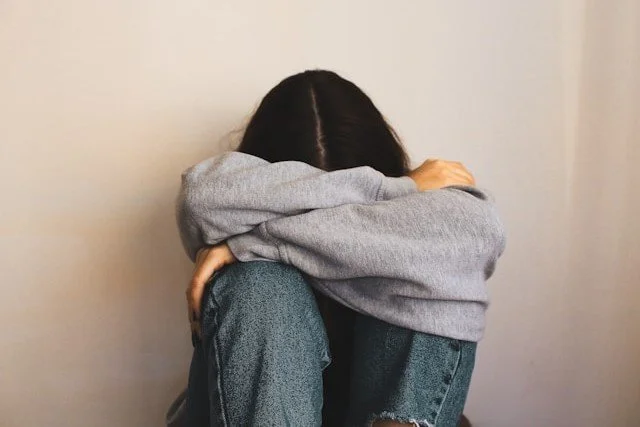
GRIEF COUNSELING
in Arlington, VA and Washington D.C.
Has The Loss Of A Loved One Shaken The Ground Beneath You?
Losing someone or even something you love dearly can make it feel like the entire world has shifted. Each day, you wake up to a life that feels unfamiliar—like you're walking through a version of reality that’s suddenly foreign. Questions and fears can start to swirl: How am I going to do this on my own? Will I ever feel okay? Will life ever make sense again?
Some days, the sadness may be so deep and the loneliness so crushing that it’s hard to breathe, let alone “move forward.” And while part of you wants to feel better, another part clings to the sorrow—because it feels like the only thing you have left but memories.
Sometimes, Pretending You’re Fine Can Seem Like Your Only Option
If you’re considering grief counseling, you know the grieving process doesn’t follow a schedule, yet it feels like the world expects you to “get over it” far too quickly. Maybe you’ve noticed friends have stopped checking in or loved ones seem confused about why you’re still struggling.
To make others comfortable, you might show up, smile, and act like you're okay while quietly falling apart inside. What’s more, your sleep, your focus, your relationships, even your physical health has likely taken a hit. And somewhere beneath it all, a small voice reminds you that the best way to honor your loved one might be to truly heal—and that’s where grief counseling can step in.
Working through your loss with one of our compassionate grief counselors can help you find peace—not by forgetting your loved one—but by carrying their memory with more hope and less hurt. Together, we’ll celebrate what was beautiful, make meaning from what was painful, and find ways for you to gently move forward with confidence.
Reach out with questions!
Grief Looks Different For Everyone—And That’s Okay
There’s no “right” way to grieve. In fact, grief is deeply personal and often so unpredictable it can change by the hour—and no two people experience it the same way, even after the same loss. Some days, you might feel comforted by fond memories; other days, those same memories may leave you in tears.
Even if you have time to prepare yourself, you may still feel stunned by the passing of a loved one. For example, losing a sick parent can still shake the very foundation of your life, stirring up painful questions about love, safety, and whether you’ll ever feel that same sense of stability again. Unfortunately, we live in a society that often minimizes the impact of loss, so many people suffer in silence.
How Grief Therapy Offers The Support Our Culture Often Lacks
In high-achieving areas like ours, we often prioritize productivity over emotional connection. Many of our social circles revolve around work, making it hard to find meaningful grief support when tragedy strikes. And given how much our culture praises self-sufficiency, asking for help can feel like a weakness.
But grief doesn’t respond to logic or hustle. It calls for compassion, reflection, and human connection. Whether you’re mourning the loss of a family member, your marriage, or even a beloved pet, working with one of our grief counselors or support groups can be life-changing.
No matter the shape your loss takes, healing is possible and you can rebuild your life—without guilt, without fear, and without having to do it all on your own.
Grief Counseling Can Help You Transform Your Pain Into Hope
First, let us say: We’re truly sorry for your loss. Losing someone you love can turn your world inside out, and we want to honor how difficult that experience can be. Grief counseling offers you a space to be exactly where you are in your process—whether you're feeling overwhelmed, numb, heartbroken, or just unsure what comes next.
There’s no expectation to “move on” or put on a brave face here. Instead, grief therapy focuses on allowing you to feel and express your emotions fully and without judgment. Over time, naming those feelings—rather than avoiding them—can help you make peace with the pain of your loss, empowering you with a new sense of identity, agency, and meaning in your life.
What Happens In Grief Therapy—And How It Helps You Heal
Every person’s experience with grief is different, and so is every therapeutic journey. Whether you're meeting with a grief counselor one-on-one or taking part in one of our support groups, the focus is on connection and healing.
In individual sessions, you’ll have the space to talk about your loved one, process your loss, and find meaningful ways to honor their memory. Although group support offers the same opportunities, you may find unexpected comfort in hearing others give voice to feelings you haven't been able to say out loud.
We also incorporate elements of Cognitive Behavioral Therapy (CBT) to help you work through anxious thoughts, depression, or other mental health symptoms that may have surfaced during the grieving process. Grief counseling can give you tools for navigating emotional triggers and facing your “stuck points” in a way that plays to your strengths, rather than forcing yourself to “just get over it.”
Although much of the work we do is emotional in nature, grief counseling can also be practical. For many people, loss brings with it a flood of logistics: managing estates, resolving family conflict, downsizing or cleaning out a loved one’s home. These tasks often feel overwhelming and painful to face. Therapy can support you through those moments, helping you stay grounded while navigating difficult decisions with clarity and grace.
You Don’t Have To Grieve Alone—Therapy Is Your Chance To Rebuild
At our practice, we understand how layered and complex grief can be. Whether you're mourning a parent, a partner, a pet, or even a version of your life that no longer exists, we offer a compassionate space for every kind of loss.
Our team of grief counselors—Sarah Moore, Jane Lowrey, and Marcelle McGinnis—are here to help you carry what feels too heavy to manage alone. With your willingness to show up for yourself and our support along the way, you can begin to rebuild your life on new terms—finding joy, meaning, and connection again, one step at a time.
Still Have Questions About Grief Counseling?
-
Grief can stir up a wide range of emotions—some expected, others surprising. You might cry at the smallest things… or wonder why you aren’t crying at all. You may feel anger, guilt, numbness, or waves of sadness that don’t make sense on the surface.
Whatever your experience, therapy is a space where nothing you feel will be judged. Grief counseling is about honoring your truth, not fitting into a mold. Our role is to help you make sense of what you’re feeling and remind you that every response to loss is valid.
-
Losing someone close to you can shake your entire sense of self—so it’s only natural to feel doubtful. However, talking with a grief counselor truly can help you heal, find comfort in the memory of your loved one, and gently create space for hope, peace, and purpose to re-enter your life. While grief therapy isn’t a quick fix, it can also be a powerful resource for navigating daily challenges, managing strong emotions, and just making life easier while you do the deeper work of healing.
-
When life feels heavy and your to-do list is endless, the idea of adding one more thing might feel impossible. But grief has a way of draining energy and focus behind the scenes, making everything else harder.
Many people find that counseling helps them feel more grounded and less scattered—saving time in the long run. Even one hour a week can give you the space to breathe, reflect, and regain emotional footing. Your loved one mattered deeply. Making time to heal is just one way of continuing to honor them.
You Don’t Have To Walk Through This Alone
Grief may feel isolating, but support is closer than you think. Whether you're grieving the loss of a parent, a partner, a pet, or a dream for the future, grief counseling offers you a safe, compassionate space for healing.
To connect with a grief counselor for your free phone consultation, call 703-261-4468—or reach out by email or through our website's contact form. When you’re ready, we’re here to help.
Our Grief Counseling Clinicians
Recent Grief Counseling Blog Posts
Grief Counseling in Arlington, VA
1530 Wilson Blvd #520, Arlington, VA 22209
Grief Counseling in Washington, D.C.
4315 50th St NW, Washington, DC 20016









